All Stories
-
 Astronomy
AstronomySome planets might home brew their own water
Tests on olivine hint that water-rich exoplanets could generate H2O internally, possibly explaining ocean worlds and even some of Earth’s early water.
-
 Space
SpaceBlack holes are encircled by thin rings of light. This physicist wants to see one
Theoretical physicist Alex Lupsasca is pushing for a space telescope to glimpse the thin ring of light that is thought to surround every black hole.
- Animals
Deep Antarctic waters hold geometric communities of fish nests
Scientists found thousands of patterned fish nests in Antarctica’s Weddell Sea, boosting calls for marine protected areas.
By Carly Kay -
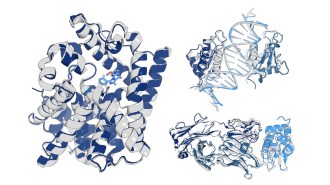 Artificial Intelligence
Artificial IntelligenceThe AI model OpenFold3 takes a crucial step in making protein predictions
The open-source AI model improves transparency in predicting how proteins interact with other molecules, which could speed up drug discovery.
-
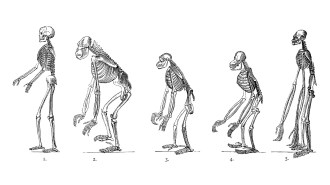 Anthropology
AnthropologyTwo tiny genetic shifts helped early humans walk upright
Scientists have linked bipedalism to changes in how the human pelvis developed millions of years ago.
- Climate
Hurricane Melissa spins into a monster storm as it bears down on Jamaica
The story of Atlantic hurricanes is treading a familiar — and frightening — path: Climate change is fueling huge, slow-moving, rain-drenching storms.
-
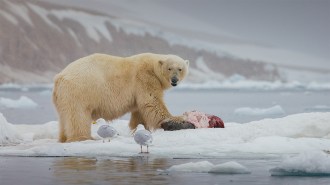 Animals
AnimalsPolar bears provide millions of kilograms of food for other Arctic species
A new study shows how much food polar bears leave behind — and how their decline threatens scavengers across the Arctic.
-
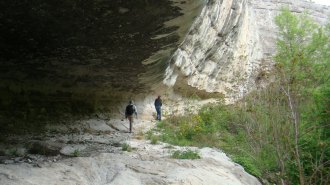 Anthropology
AnthropologyDNA reveals Neandertals traveled thousands of kilometers into Asia
DNA and stone tool comparisons suggest Eastern European Neandertals trekked 3,000 kilometers to Siberia, where they left a genetic and cultural mark.
By Bruce Bower - Physics
These simple knife tricks stop onion tears instantly
With a high-speed camera and a tiny guillotine, scientists showed that chopping onions slowly and with sharper knives cuts down on tears.
By Carly Kay -
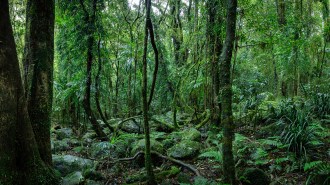 Climate
ClimateAustralia’s tropical forests now emit CO₂, clouding the COP30 talks
These tropical forest CO₂ emissions may warn of similar shifts in other regions, a key topic for COP30 climate talks in Brazil.
-
 Artificial Intelligence
Artificial IntelligenceA conference just tested AI agents’ ability to do science
AI promises to speed up scientific analysis and writing. However, AI agents struggled with accuracy and judgment.
-
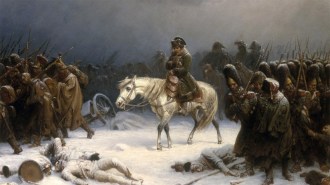 Humans
HumansNapoleon’s retreating army may have been plagued by these microbes
DNA from Napoleonic soldiers’ teeth uncovered two fever-causing bacteria that may have worsened the army’s fatal retreat from Russia.
By Meghan Rosen